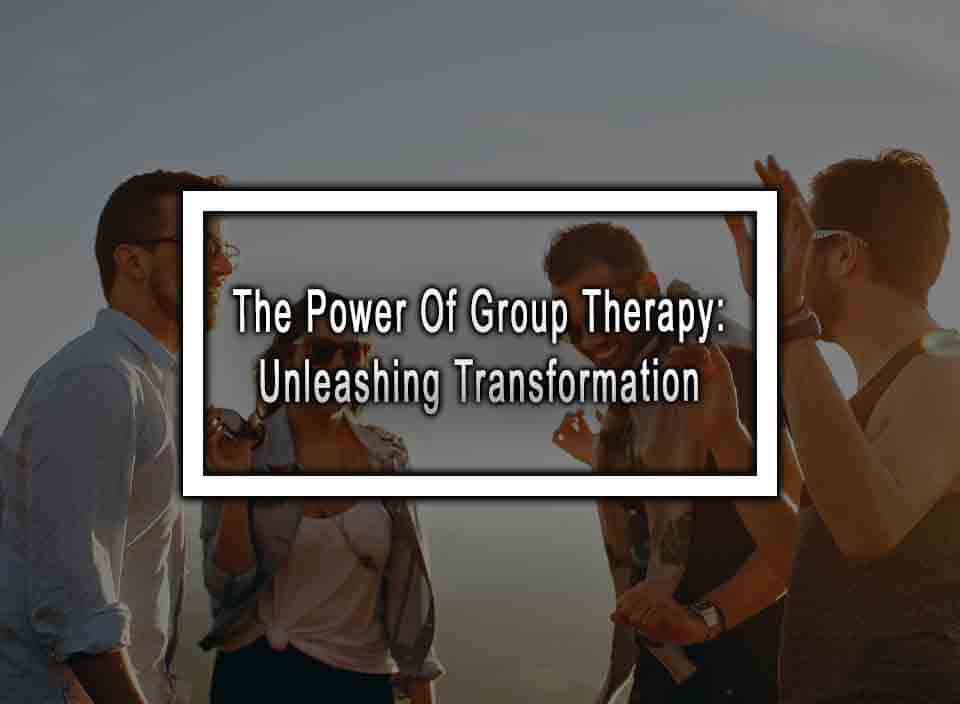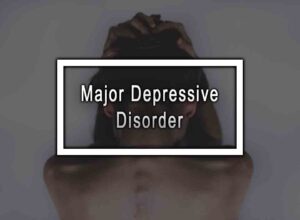Table of Contents
ToggleThe Healing Power of Group Therapy: Unleashing Its Profound Benefits
Join us as we delve into the incredible world of group therapy. From building connections to gaining personal insight, this listicle will shed light on how group therapy can be a game-changer for your mental well-being. Explore the unique dynamics, diverse perspectives, and limitless support found in these sessions. Join the circle, break the isolation, and embark on a transformative journey through this powerful approach to healing.
1. Building Connections: Finding Strength in Community
When it comes to dealing with personal challenges, you don’t have to go it alone. Group therapy provides a fertile ground for forging meaningful connections with individuals who share similar struggles. By participating in a shared space, you will gain a sense of belonging, knowing that there are others who truly understand your experiences and emotions. Furthermore, the support received from fellow group members can be a catalyst for personal growth and resilience.
2. Diverse Perspectives: Expanding Your Outlook
One of the unique advantages of group therapy is the exposure to diverse perspectives and life stories. Group members come from various backgrounds, bringing a wealth of different experiences and insights to the table. Through active participation and open-mindedness, you have the opportunity to broaden your own understanding of the world. This expansion of perspective can challenge preconceived notions, break down biases, and promote personal growth.
3. Skill Practice: Enhancing Coping Mechanisms
Group therapy often involves skill-building exercises and role-playing, giving participants practical tools to navigate life’s challenges. Group sessions provide a safe space to actively practice coping mechanisms and receive constructive feedback from both professionals and peers. These opportunities for skill practice can greatly enhance your ability to handle stress, manage emotions, and develop better interpersonal relationships.
4. Collective Empowerment: Motivation and Support
The collective energy generated within a therapy group can be a powerful motivator. Witnessing the progress and success stories of others can inspire you to forge ahead with your own personal growth journey. Additionally, group members often offer unwavering support and encouragement, serving as a support network in times of difficulty. This collective empowerment fuels motivation, fostering the determination to overcome challenges and achieve personal goals.
5. Insight and Self-Reflection: Mirror, Mirror on the Wall
Group therapy serves as a mirror through which you can gain enhanced self-awareness. By actively listening to others’ experiences and sharing your own, you’ll uncover hidden aspects of yourself that may have never surfaced in isolation. This process of self-reflection and introspection, guided by professional facilitators, can lead to profound personal insights, ultimately contributing to self-growth and improved mental well-being.
Conclusion
Group therapy possesses a remarkable ability to transcend individual therapy. Creating a supportive, non-judgmental space where connections and healing flourish, serves as a beacon of hope for countless individuals seeking personal transformation. Whether you’re struggling with anxiety, depression, trauma, or any other issue, the power of group therapy lies in the shared experiences, collective wisdom, and unwavering support it offers. Embrace the transformative potential of group therapy, break the chains of isolation, and embark on a journey toward lasting healing and growth.
Group Therapy FAQ
Here are the most common questions about group therapy.
1. How does group therapy work?
In group therapy, the therapist facilitates discussions and encourages participants to share their thoughts and experiences. The group members provide support, feedback, and insights to each other. The therapist may also introduce specific therapeutic exercises or techniques to enhance personal growth and problem-solving skills.
2. Are group therapy sessions confidential?
Yes, group therapy sessions are typically confidential. Participants are encouraged to respect the privacy of others and keep what is shared in the group confidential outside of the sessions. However, therapists are mandated to break confidentiality if there is a risk of harm to oneself or others.
3. How long do therapy sessions usually last?
Group therapy sessions can vary in duration. They can range from one hour to two hours, depending on the therapist’s preference and group dynamics. Some group therapy programs may have a set number of sessions, while others may be ongoing and open-ended.
4. How large are therapy groups?
Group sizes can vary, but they usually consist of 6 to 10 participants. Smaller groups may allow for more personal interaction, while larger groups can offer a broader range of perspectives and experiences.












